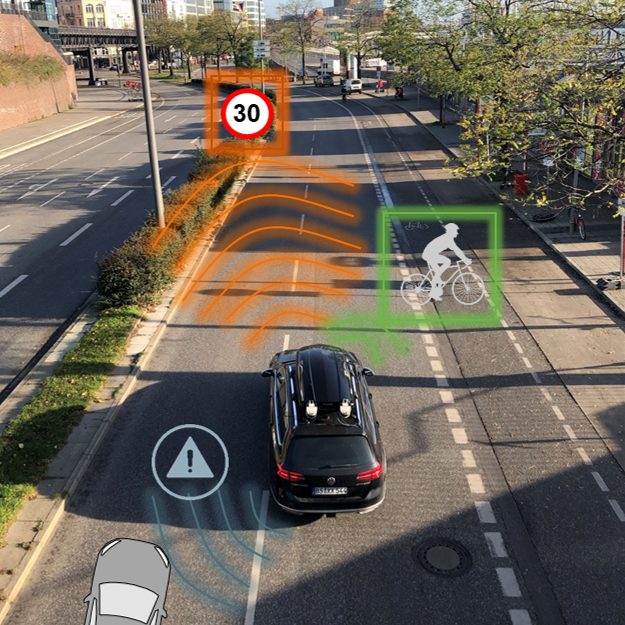Lecturer: Prof. Dr.-Ing. Roman Henze, Silvia Thal
Supervisor: Mohamed Amine Mejri
Scope: 5 CP
Requirements: Bachelor
Cycle: Summer semester

Course materials: Presentation slides, provided digitally via Stud.-IP.
The general information are shared by Stud.-IP; it is therefore essential that you register for the course at the start of the lecture.
Students are able to categorize advanced driver assistance systems (ADAS) in the levels of automation and differentiate them from passive safety systems.
Based on the requirements of an assistance system, students will be able to assess an existing sensor concept and discuss the use of additional sensors to record and interpret the driving environment, the vehicle and the driver. Students will be able to analyze the functionality of series-close and research-relevant driver assistance systems in the context of their field of application and categorize them on the basis of various criteria. Students are able to understand network architectures in the vehicle and categorize communication technologies according to system requirements.
Given development objectives, students are able to select suitable test procedures (e.g. simulative, hardware-in-the-loop, real tests) and develop a test plan.
Students will be able to carry out a risk assessment of a technical system in accordance with relevant standards in the automotive industry (in particular functional safety) and derive requirements for safety assessment. Students are able to name the legal framework conditions for the introduction of ADAS and demonstrate the transferability to the approval of higher automation systems.